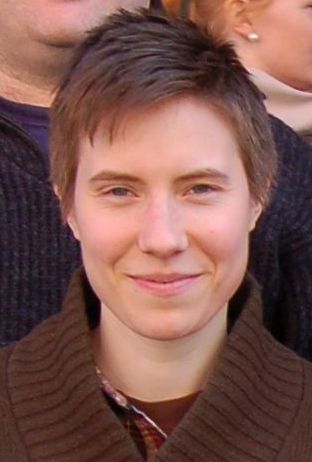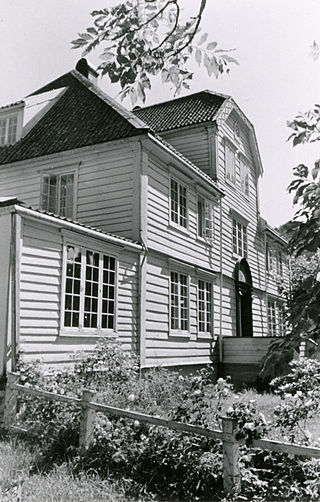
Norwegian is a North Germanic language spoken mainly in Norway, where it is an official language. Along with Swedish and Danish, Norwegian forms a dialect continuum of more or less mutually intelligible local and regional varieties; some Norwegian and Swedish dialects, in particular, are very close. These Scandinavian languages, together with Faroese and Icelandic as well as some extinct languages, constitute the North Germanic languages. Faroese and Icelandic are not mutually intelligible with Norwegian in their spoken form because continental Scandinavian has diverged from them. While the two Germanic languages with the greatest numbers of speakers, English and German, have close similarities with Norwegian, neither is mutually intelligible with it. Norwegian is a descendant of Old Norse, the common language of the Germanic peoples living in Scandinavia during the Viking Age.
Nynorsk is one of the two official written standards of the Norwegian language, the other being Bokmål. From 12 May 1885, it became the state-sanctioned version of Ivar Aasen's standard Norwegian language parallel to the Dano-Norwegian written language (Riksmål). Nynorsk became the name in 1929, and it is after a series of reforms still a variation which is closer to Landsmål, whereas Bokmål is closer to Riksmål and Danish.
The Language Council of Norway is the administrative body of the Norwegian state on language issues. It was established in 2005 and replaced the Norwegian Language Council which existed from 1974 to 2005. It is a subsidiary agency of the Ministry of Culture and has thirty-five employees. It is one of two organisations involved in language standardization in Norway, alongside the Norwegian Academy.

Atle Antonsen is a Norwegian comedian and actor.

Berge Ragnar Furre was a Norwegian historian, theologian and politician for the Socialist Left Party.

Turid Birkeland was a Norwegian cultural executive and former politician for the Labour Party. She was Minister of Culture in 1996–97. She was an author and also worked in television, including being chief of cultural programming at NRK and a member of the board at Telenor. She also headed the Risør Chamber Music Festival, and was the director of Concerts Norway.
Dag og Tid is a national weekly newspaper in Norway that uses the Nynorsk standard of the Norwegian language.

The Norwegian language conflict is an ongoing controversy in Norwegian culture and politics related to the written versions of Norwegian. From 1536/1537 until 1814, Danish was the standard written language of Norway due to the union of crowns with Denmark, in which time the Danish Empire was founded. As a result, the overall form of chosen modern written Norwegian and its leaning towards or away from Danish underpins controversies in anti-imperialistic nationalism, rural versus urban cultures, literary history, diglossia, spelling reform, and orthography.

Olav Dalgard was a Norwegian literary and art historian, filmmaker, author and educator.

Einfrid Perstølen was a Norwegian psychiatrist and language proponent.

Amal Aden is the pseudonym of a Somali–Norwegian writer. She is an author, lecturer and lesbian activist. Aden is substitute member of the Norwegian Press Complaints Commission and has been a contributor to the newspaper Dag og Tid since January 2013.

Conservative, formerly The Christians Party is a right wing Christian conservative populist political party in Norway founded in 2011. The party leader is Erik Selle.
Kristen Stalleland was a Norwegian farmer, magazine editor, children's writer, biographer and translator.

Kristin Fridtun is a Norwegian writer, author and former ski jumper who represented Elverum Hopp.

Solnør is a Norwegian farm in Skodje in Møre og Romsdal county.

Linda Eide is a Norwegian television and radio presenter, programme producer, comedian, actor and chat-show host.

Ulrikke Brandstorp, known professionally as Ulrikke, is a Norwegian singer, songwriter, musical actress, voice actress and television presenter.

Lan Marie Nguyen Berg is a Norwegian politician from the Green Party. She currently serves as an MP for Oslo since 2021 and as one of the party's deputy leaders since 2022. Berg previously served as Oslo City Commissioner for transport and the environment from 2015 to 2021, when she resigned following a confidence vote.

Amanda Klara Georgiadis Tenfjord is a Greek-Norwegian singer and songwriter. She represented Greece in the Eurovision Song Contest 2022 with the song "Die Together".

Leo Ajkic is a Norwegian-Bosnian presenter for radio and TV.
















